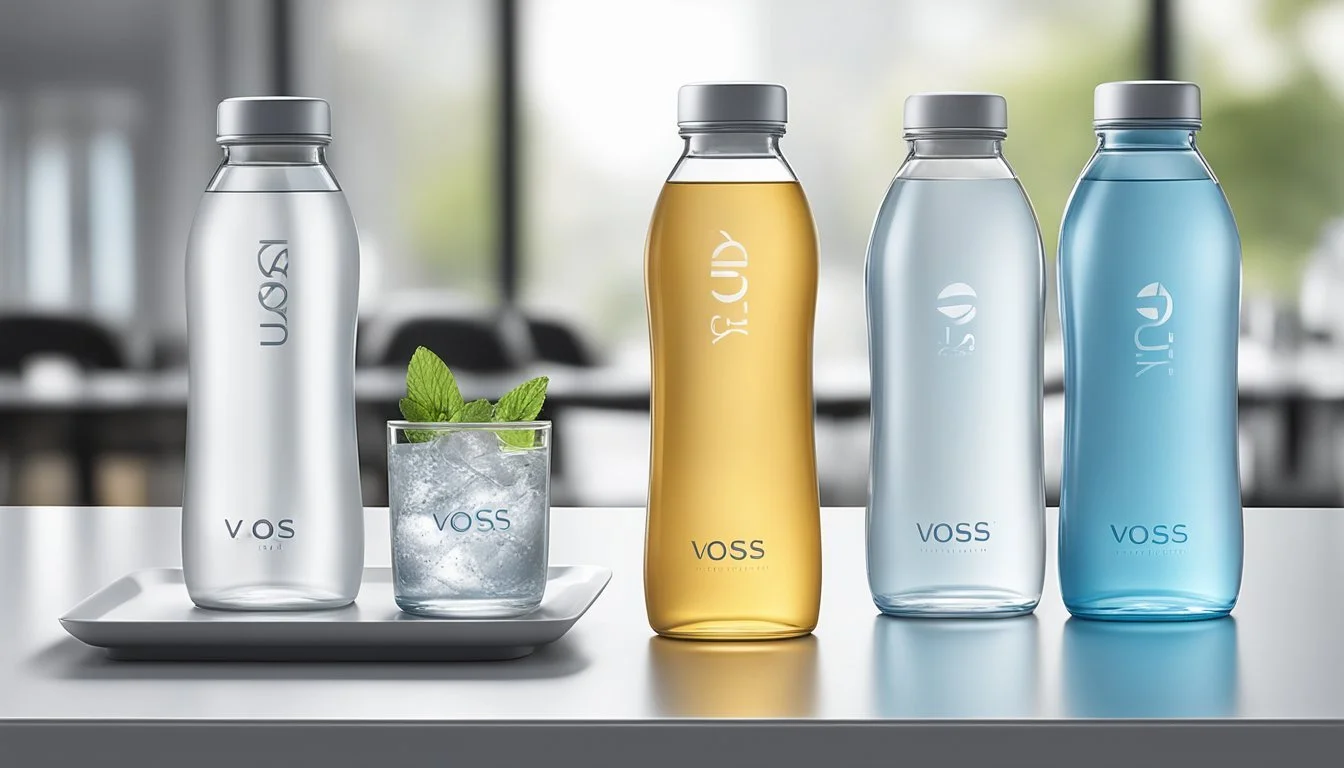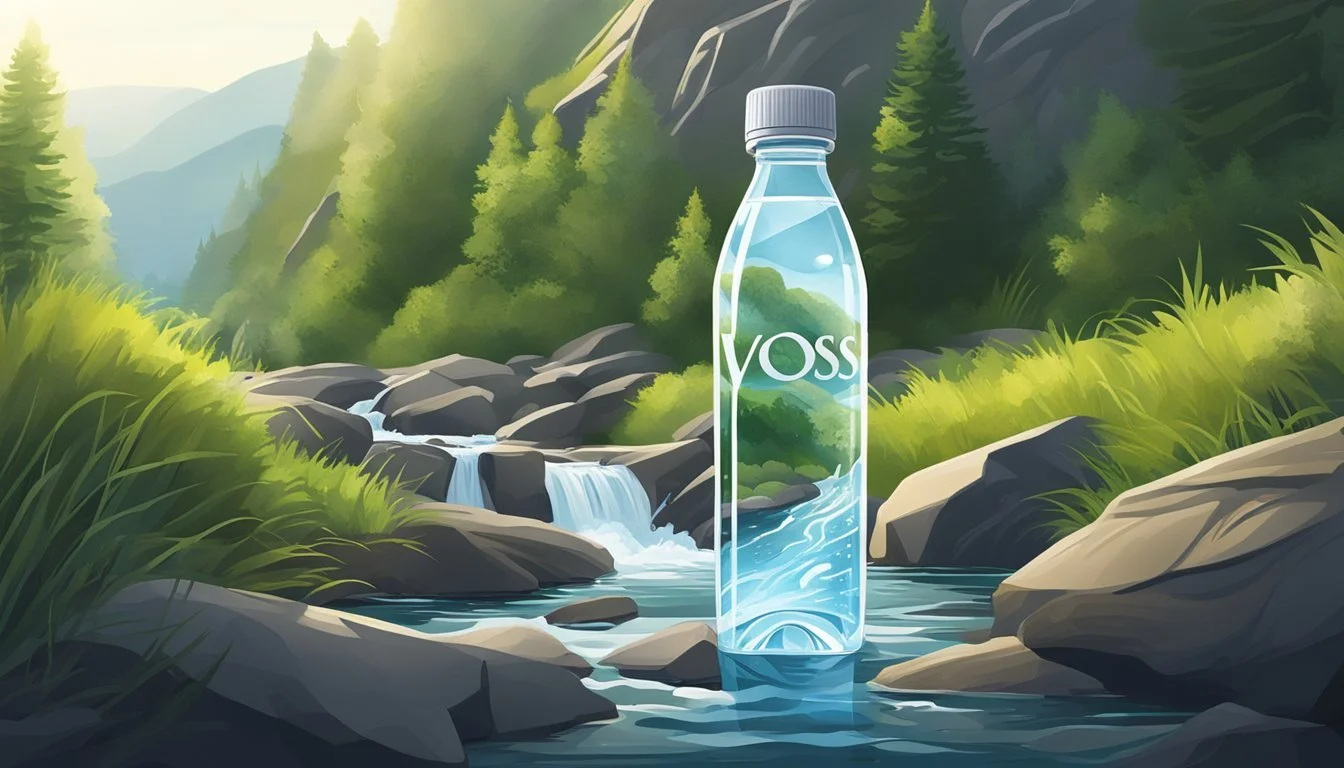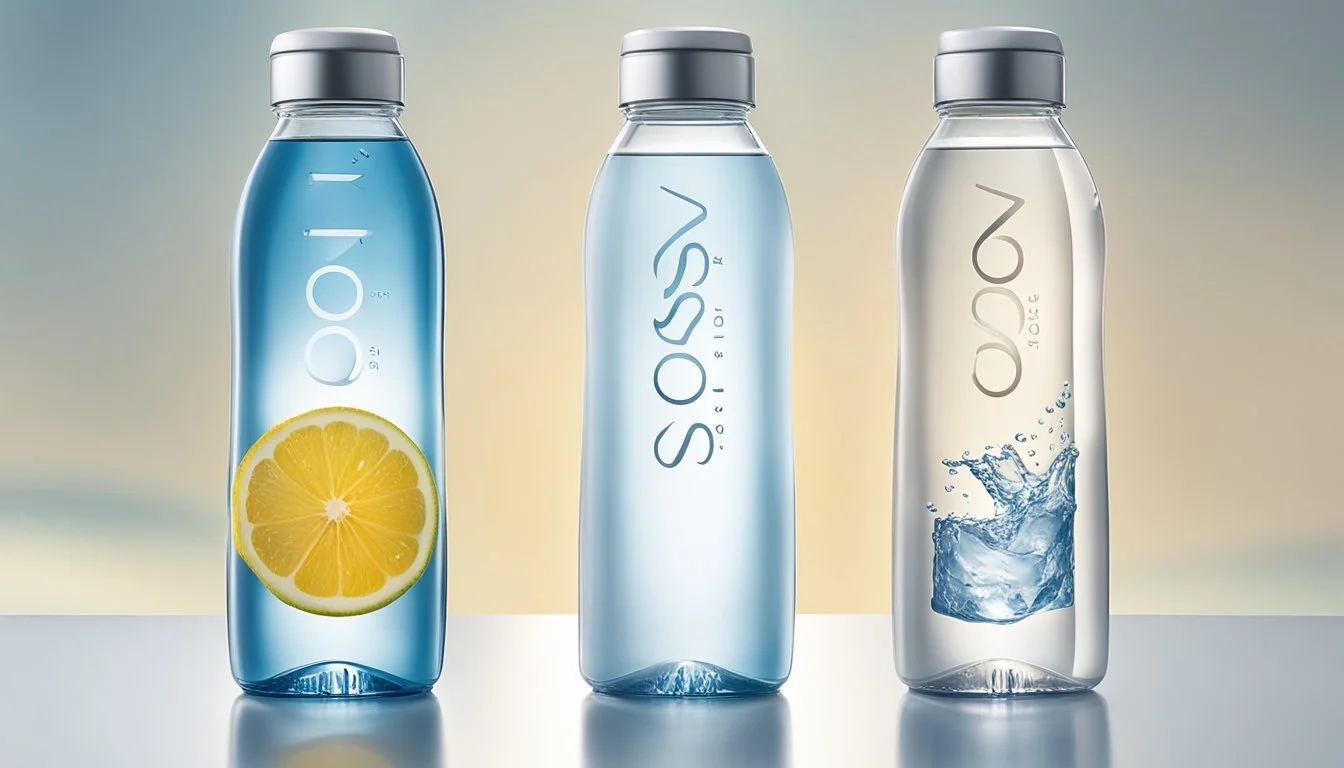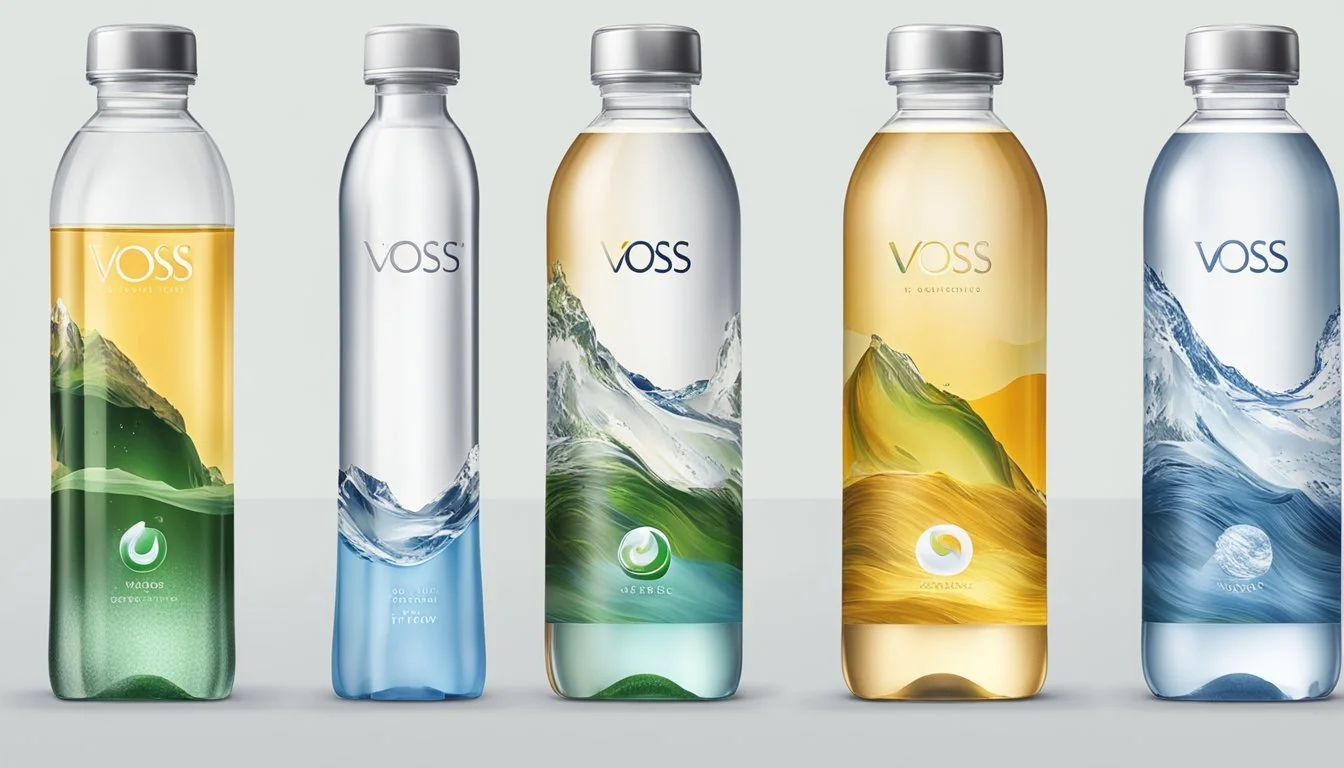Voss vs. Flow
Which Bottled Water is Better? Detailed Comparison and Insights
In an era where hydration is paramount and the quality of what we consume is scrutinized more than ever, the choice between bottled water brands like Voss and Flow becomes significant. Voss, known for its sleek design and pure artesian water from Norway, often competes against Flow, celebrated for its alkaline spring water and eco-friendly packaging. Choosing between Voss and Flow ultimately depends on your priorities: design and taste versus environmental impact and health benefits.
Voss brings a luxurious feel with its glass container that adds a touch of sophistication to any setting. Its water, sourced from an underground aquifer, promises purity and a clean taste. Flow, on the other hand, emphasizes sustainability with its renewable, plant-based packaging and boasts additional health perks with its naturally alkaline water, which can support better hydration and balance.
For consumers prioritizing environmental sustainability and health benefits, Flow's eco-conscious approach and alkaline properties make it a compelling choice. Conversely, for those seeking a premium drinking experience with aesthetically pleasing packaging, Voss stands out. This article will delve deeper into these distinctions to help you decide the best bottled water for your needs.
Overview of Bottled Water Industry
The bottled water industry has been growing rapidly due to changing consumer preferences and evolving market dynamics. This section covers the critical aspects of these shifts, including consumer inclinations and brand competition.
Evolving Consumer Preferences
In recent years, consumers have increasingly sought bottled water options that align with health-conscious lifestyles. Brands like Voss and Flow have responded by emphasizing purity, mineral content, and sources that claim superior natural filtration.
This trend reflects a broader movement towards wellness, leading to a demand for products free from contaminants and additives.
Additionally, the preference for sustainable practices has become more prominent. Consumers are now considering packaging materials and environmental impact as part of their purchasing decisions. This shift has led to the rise of alternatives like Boxed Water, which uses primarily paper-based cartons, highlighting the importance of sustainability in the market.
Market Dynamics and Brand Reputation
The bottled water market is highly competitive with major players like Voss, Fiji, and Flow vying for dominance. These brands have developed distinct identities to appeal to different consumer segments.
Voss, for instance, positions itself as a premium lifestyle brand with sleek packaging and a reputation for high-quality water sourced from Norway.
Brand reputation is crucial as it can significantly influence consumer choice. Substantial marketing efforts and endorsements often bolster this, creating a sense of luxury and trust around specific brands. Additionally, price points and availability can affect market dynamics, as premium brands often come at a higher cost.
The interplay between innovative marketing, sustainable practices, and quality assurance continues to shape the bottled water industry, reflecting both consumer demands and competitive strategies.
Analyzing Voss and Flow
In evaluating Voss and Flow, key differences emerge in their company backgrounds and marketing strategies. This section dives into their histories, market approaches, and overall presence.
Company Profiles
Voss: Established in Norway, Voss is known for its artesian water sourced from an aquifer deep beneath the surface. It offers still and sparkling varieties and is marketed as a premium brand. The iconic cylindrical glass bottle contributes to its upscale image.
Flow: Unlike Voss, Flow prides itself on its eco-friendly packaging and alkaline spring water sourced from family-owned springs. The brand emphasizes sustainability, using renewable and recyclable materials. It's often associated with the wellness and health-centric community.
Brand Presence and Marketing
Voss: Voss targets luxury markets, often found in high-end hotels, restaurants, and airlines. Its minimalist design and high-quality packaging aim to attract a more affluent clientele. The brand focuses on purity and sophistication.
Flow: Flow leverages its eco-conscious packaging, appealing to environmentally aware consumers. The brand uses vibrant packaging and positions itself as both a health-conscious and eco-friendly option. It's commonly seen in fitness and wellness spaces, contributing to a more modern, sustainable lifestyle.
Source and Natural Composition
Voss and Flow stand out with their distinct sources and natural compositions, each bringing unique characteristics to their bottled water.
Voss: Norwegian Artesian Water
Voss is sourced from an artesian well in Southern Norway. The well taps into an underground aquifer, where pressure naturally drives the water to the surface.
This ensures minimal human interference in its collection.
Voss is known for its low mineral content and a crisp, clean taste. The water undergoes microfiltration to remove impurities but maintains its natural composition.
While rich in certain electrolytes, its overall mineral profile is subtle, catering to those who prefer a neutral palate without the heavy mineral taste.
Flow: Naturally Alkaline Spring Water
Flow water originates from a natural spring in the Severn Springs area of Ontario, Canada.
The spring provides water that is naturally alkaline, with a pH level of 8.1, attributed to its journey through mineral-rich limestone and dolomite.
Unlike Voss, Flow's water boasts a higher mineral content, which includes essential electrolytes such as calcium, magnesium, and potassium.
This contributes to its smooth taste and the perceived health benefits related to hydration and mineral intake.
Flow opts for minimal processing, preserving the mineral-rich quality of its source water.
Water Quality and Purification Methods
Voss and Flow are popular bottled water brands known for their distinct filtration and purification methods. Both brands emphasize high-quality purification and the addition of beneficial minerals to enhance taste and health benefits.
Filtration and Purification
Voss
Voss sources its water from Southern Norway, utilizing highly protected artesian aquifers. The water undergoes minimal filtration, preserving its natural purity and taste. Voss prides itself on the untouched quality of its water, which is naturally low in minerals and free from pollutants.
Flow
Flow, on the other hand, uses a different approach. Known for its commitment to alkaline water, Flow sources its water from naturally occurring artesian springs. The water is naturally filtered underground through limestone, resulting in a clean, pure product. This natural filtration method maintains the integrity of the water, ensuring it remains free from contaminants.
Mineralization and Ionization
Voss
Voss offers water with a low mineral content, which some consumers prefer for its crisp and clean taste. The water retains its minimal natural mineral profile, providing a refreshing hydration experience without any added substances.
Flow
Flow is specifically known for its alkaline water, boasting a pH level of 8.1. The water naturally gathers minerals like calcium, magnesium, and potassium as it filters through the limestone, enhancing its health benefits and taste. This mineralized, alkaline nature of Flow water supports hydration and helps to balance bodily pH levels.
Both Voss and Flow cater to different consumer preferences through their unique purification and mineralization methods, ensuring that they provide high-quality bottled water tailored to various tastes and health requirements.
Health and Hydration Benefits
When comparing Voss and Flow, it's essential to examine their effectiveness in promoting hydration and the benefits their mineral and electrolyte content may offer.
Importance of Hydration
Hydration is critical for maintaining bodily functions such as temperature regulation, joint lubrication, and nutrient transport. Both Voss and Flow provide essential hydration, but their composition can influence how effectively they replenish fluids.
Flow water is sourced from artesian springs and contains naturally occurring minerals that can support hydration. Voss, known for its pristine quality, originates from Norwegian springs and is lauded for its purity. Drinking enough of either can help prevent dehydration, maintain cognitive function, and support skin health.
Role of Electrolytes and Minerals
Electrolytes like sodium, potassium, and magnesium are essential for muscle function and fluid balance. Flow water contains higher levels of these minerals, which can be beneficial during intense physical activity or in hot climates.
Voss has a more neutral taste due to lower mineral content, making it ideal for those who prefer less mineral taste in their water. Flow offers naturally alkaline water, which can neutralize acid levels in the body, potentially enhancing hydration efficiency and reducing acid reflux issues.
Both brands provide clean, safe hydration, but Flow's mineral content may offer additional electrolytes that can be beneficial depending on individual health needs.
Taste Profile and Water Aesthetics
When comparing Voss and Flow bottled waters, attention to taste and pH balance is essential. Each brand brings a distinct sensory experience and differing pH levels that can influence consumer preferences.
Sensory Evaluation of Water Taste
Voss water is revered for its clean, crisp taste and neutral flavor. Due to its low mineral content, it provides a smooth mouthfeel that is often described as refreshing and pure. This makes it a popular choice for those who prefer minimal interference with the natural water taste.
Flow, on the other hand, offers a slightly different sensory profile. Known for its alkaline nature, Flow water has a subtle sweetness and a smooth, silky texture. This is largely due to its naturally occurring electrolytes, which contribute to a distinct mineral-rich flavor. The high pH level may also enhance its perceived hydration qualities.
The Significance of pH Levels
pH levels are critical in evaluating bottled water. Voss water typically has a neutral pH of around 7, ensuring a balanced taste without any acidic or alkaline tendencies. This neutrality can be appealing to a wide range of consumers, especially those looking for a pure and unbiased water flavor.
On the contrary, Flow water distinguishes itself with a higher pH, usually around 8.1 to 8.3. This positions it in the alkaline water category, which some consumers believe offers health benefits such as better hydration and neutralization of body acidity. The high pH gives Flow a unique taste that can appeal to those seeking a distinct drinking experience.
Understanding these differences in sensory experience and pH balance is crucial when choosing between Voss and Flow bottled waters. Each brand's unique characteristics cater to varying preferences, providing distinct advantages based on individual tastes and health considerations.
Packaging and Environmental Concerns
The environmental impact of bottled water largely depends on its packaging materials and the sustainability initiatives of the brands. Understanding these aspects will help consumers make more informed choices.
Plastic vs. Glass Bottles
Voss offers bottled water in both plastic and glass options. The glass bottles, commonly found in their premium product line, are reusable and recyclable, which can reduce environmental waste.
Flow primarily uses Tetra Pak cartons, which are largely composed of paperboard, along with layers of plastic and aluminum to ensure durability and waterproofing. While Tetra Pak is recyclable, the process requires specialized facilities, limiting its overall accessibility.
Plastic bottles often face scrutiny due to concerns about BPA (Bisphenol A), a compound found in some plastics that may have health implications. Voss uses BPA-free plastic for its bottles to avoid these concerns.
Sustainability Initiatives and Impacts
Voss has committed to using more sustainable materials and improving the recyclability of its packaging. They also focus on cutting down the carbon footprint associated with the transportation of glass bottles, which are heavier and thus more fuel-intensive to ship.
Flow emphasizes renewable resources with their Tetra Pak packaging, which contains a higher percentage of plant-based materials. The use of FSC-certified paper and efforts towards increasing the recyclability of their cartons highlight their commitment to environmental responsibility.
Both brands promote themselves as eco-friendly, but the scope and effectiveness of their sustainability initiatives and the practicality of recycling their packaging materials are critical factors to consider. Reducing environmental impact through better packaging choices remains a priority for each brand.
Comparative Analysis
This analysis explores the key differences between Voss and Flow bottled water, focusing on price points and availability to help consumers make informed decisions.
Price Point and Consumer Choices
When it comes to cost, Voss positions itself as a premium brand. This is reflected in its higher price tag compared to many other bottled waters, including Flow. Voss water, sourced from Norway, offers still and sparkling options, often found in sleek, cylindrical glass bottles that can add an air of luxury but increase costs.
Flow, on the other hand, markets itself as a more affordable yet eco-friendly option. Packaged in a paper-based container, Flow aims to attract consumers who are environmentally conscious without demanding a premium price. This sustainability factor may appeal to a different set of consumers opting for both cost-effectiveness and environmental responsibility.
Access and Availability
Voss water is available in a wide range of retail outlets globally. You can commonly find it in high-end restaurants, hotels, and specialty grocery stores. Its presence in numerous countries makes it accessible to a sizeable consumer base looking for a posh drinking experience.
Flow’s availability is increasing as sustainability trends grow. Flow is found in many mainstream grocery stores and online marketplaces, appealing to those focusing on both convenience and sustainability. While it may not have the same reach in upscale settings as Voss, its distribution network is expanding, providing more options for daily consumers.
Consumer Preferences and Final Recommendations
Consumer preferences vary when choosing between Voss and Flow bottled waters, guided by factors such as taste, packaging, and health benefits.
Voss, known for its distinct glass bottles, appeals to those prioritizing premium feel and aesthetic appeal. It is often chosen for its pure water quality, sourced from artesian wells in Norway, offering a clean and crisp taste.
Flow, on the other hand, stands out with its eco-friendly packaging. It utilizes Tetra Pak containers, which are 100% recyclable. This choice attracts environmentally conscious consumers. Flow’s water is alkaline, boasting natural electrolytes and minerals that cater to those in pursuit of health benefits.
Taste preferences also play a major role. Some find Voss's taste neutral and smooth, while others prefer Flow's light mineral taste. Each brand highlights its mineral content, with Flow emphasizing its naturally occurring alkaline properties.
Brand Packaging Water Source Taste Health Benefits Voss Glass/Plastic Artesian Well (Norway) Neutral, Crisp Pure, Low Mineral Content Flow Tetra Pak Canadian Spring Water Light Mineral Taste Naturally Alkaline, Electrolytes
Price points also differ, with Voss typically positioned as a luxury item, making it costlier. Flow is often priced moderately, balancing between premium and affordability.
Consumers seeking luxury and purity might lean toward Voss, while those valuing sustainability and health benefits may prefer Flow.
Choosing the best bottled water between Voss and Flow ultimately depends on individual priorities regarding taste, packaging, and health benefits. Both brands deliver high-quality options, making them strong contenders in the bottled water market.






